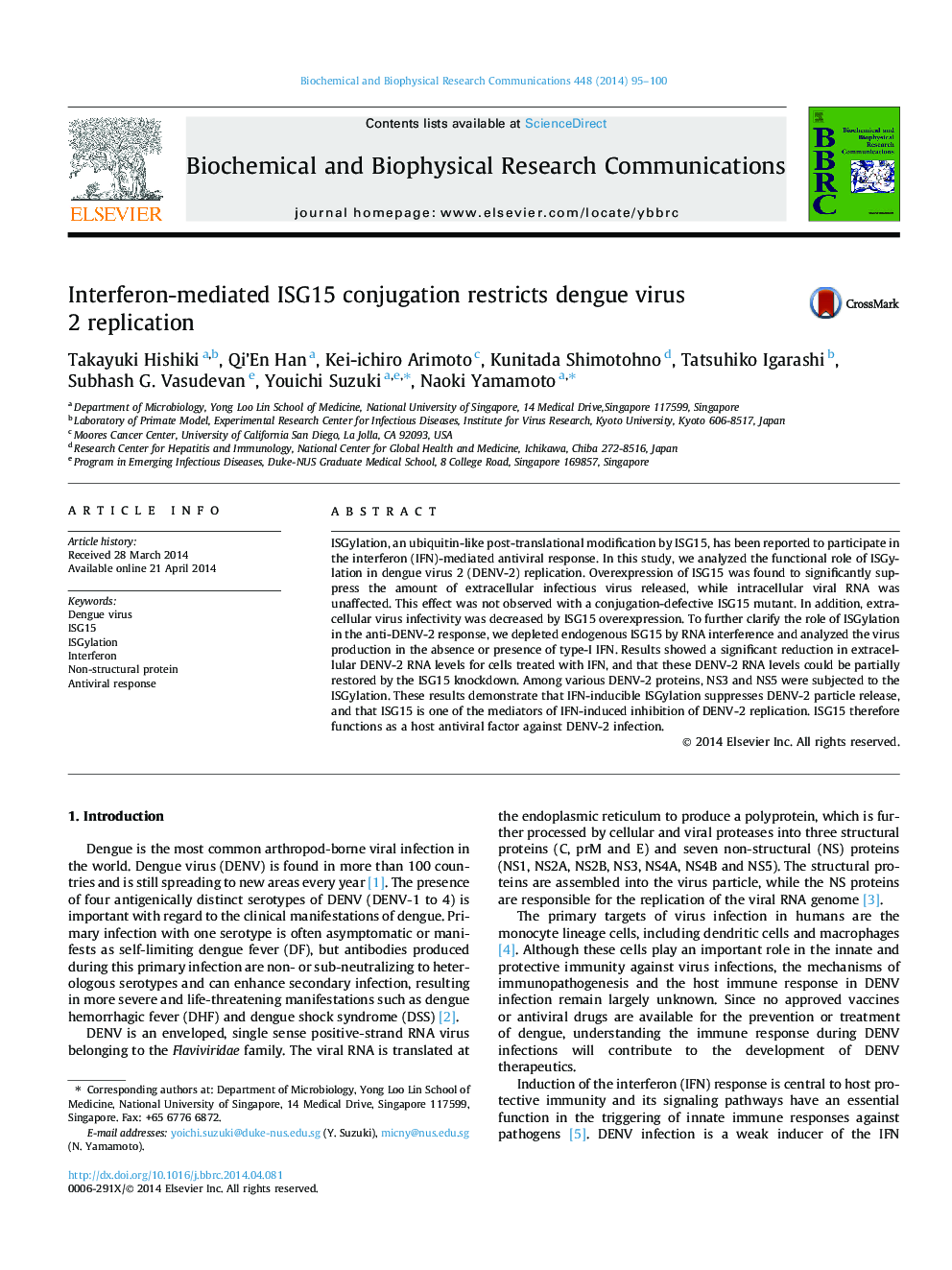| Article ID | Journal | Published Year | Pages | File Type |
|---|---|---|---|---|
| 10755543 | Biochemical and Biophysical Research Communications | 2014 | 6 Pages |
Abstract
ISGylation, an ubiquitin-like post-translational modification by ISG15, has been reported to participate in the interferon (IFN)-mediated antiviral response. In this study, we analyzed the functional role of ISGylation in dengue virus 2 (DENV-2) replication. Overexpression of ISG15 was found to significantly suppress the amount of extracellular infectious virus released, while intracellular viral RNA was unaffected. This effect was not observed with a conjugation-defective ISG15 mutant. In addition, extracellular virus infectivity was decreased by ISG15 overexpression. To further clarify the role of ISGylation in the anti-DENV-2 response, we depleted endogenous ISG15 by RNA interference and analyzed the virus production in the absence or presence of type-I IFN. Results showed a significant reduction in extracellular DENV-2 RNA levels for cells treated with IFN, and that these DENV-2 RNA levels could be partially restored by the ISG15 knockdown. Among various DENV-2 proteins, NS3 and NS5 were subjected to the ISGylation. These results demonstrate that IFN-inducible ISGylation suppresses DENV-2 particle release, and that ISG15 is one of the mediators of IFN-induced inhibition of DENV-2 replication. ISG15 therefore functions as a host antiviral factor against DENV-2 infection.
Related Topics
Life Sciences
Biochemistry, Genetics and Molecular Biology
Biochemistry
Authors
Takayuki Hishiki, Qi'En Han, Kei-ichiro Arimoto, Kunitada Shimotohno, Tatsuhiko Igarashi, Subhash G. Vasudevan, Youichi Suzuki, Naoki Yamamoto,
